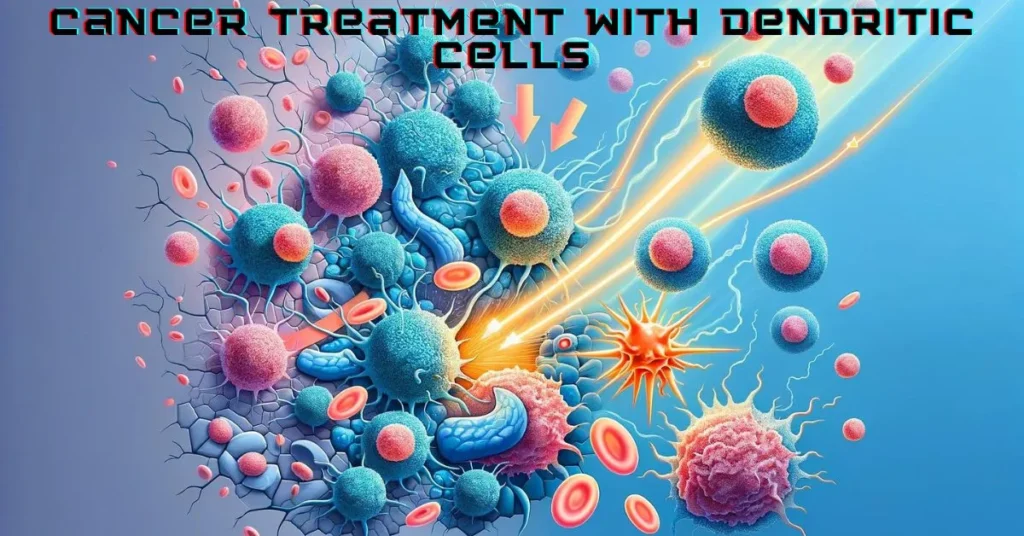Dendritic cells (DCs) are one of the trends in modern oncology. Currently, hundreds of trials are being conducted worldwide to evaluate the efficacy and safety of dendritic cell vaccines in various types of malignant tumors. In specialized oncology centers in developed countries, dendritic cell therapy for cancer is already offered to patients in the advanced stages of cancer or as a method of adjuvant therapy, to reduce the risk of tumor recurrence after surgery.
Contents
What are dendritic cells and how they help treat cancer
DCs are a type of immune cells. They do not attack the tumor themselves. The task of DCs is to encounter a foreign cell, such as a cancer cell or bacterial cell, capture its antigens, break them down into small pieces, and then present them to T-cells.
The antigen is a potential target for immune attack. But the T-cells themselves do not know how to recognize it. Antigens are usually protein molecules, and they are too big. That’s why the immune system needs DCs for a normal response. They are the ones who tell the T-cells who is a foreigner in the body and who should be attacked.
In cancer, DCs activity is reduced. This is one of the mechanisms by which the tumor is able to avoid an immune response. But cancer treatment with dendritic cells helps to solve this problem.
The principle of dendritic cell treatment
DC therapy refers to immunotherapy. The peculiarity of this branch of oncology is that in the fight against tumors, drugs are used that affect not the cancer cells themselves, but the patient’s immune system. They increase the efficiency of the immune system in fighting cancer.
DCs can teach T-cells how to deal with the tumor, but to do that, the DCs themselves have to be “trained”. They have to be acquainted with an antigen. They will then break it down into fragments and present them to the T-cells.
The treatment is as follows:
- Monocytes are harvested from a person’s blood.
- Monocytes are converted into DCs in the laboratory.
- They are taught to recognize certain molecules, depending on the type of tumor.
- Trained cells are returned to the body, e.g. by subcutaneous injection.
- In the lymphatic system, DCs meet T-cells and pass on information about tumor antigens.
- The T-cells attack the targets, destroying cancer cells throughout the body.
- The cancer cells break down and many other antigens are released into the bloodstream, further stimulating the immune system.
How dendritic cell treatment is carried out
There is no universal way to treat cancer with dendritic cells. The methodology is still not standardized. Different oncology clinics perform the procedure in different ways.
In any case, the dendritic cell vaccine is made individually for a particular patient. The patient’s own blood cells should be used for the production of the vaccine. It is optimal to use antigens from the patient’s tumor tissue rather than standard antigen sets. The material can be obtained by biopsy or after surgery to remove the tumor.
After the person’s blood is collected, it takes 1 to 3 weeks to produce the vaccine. It is then injected subcutaneously or intramuscularly. The person experiences flu-like symptoms for a few days, but severe toxic reactions are rare. Fever and body aches cause discomfort, but these are good signs because they mean that the immune system has begun to work.
Dendritic cell therapy is an additional rather than a primary treatment for cancer. DCs are rarely used as the only treatment. The vaccine is usually combined with immune checkpoint inhibitors, oncolytic viruses, and traditional cancer treatments such as chemotherapy.
If you want to find out prices, undergo cancer diagnostics and treatment abroad, visit the Booking Health website. Here you can book your treatment at a convenient date and cost. The specialists at Booking Health will help you choose a clinic that already uses dendritic cells in cancer treatment and organize your trip abroad.











